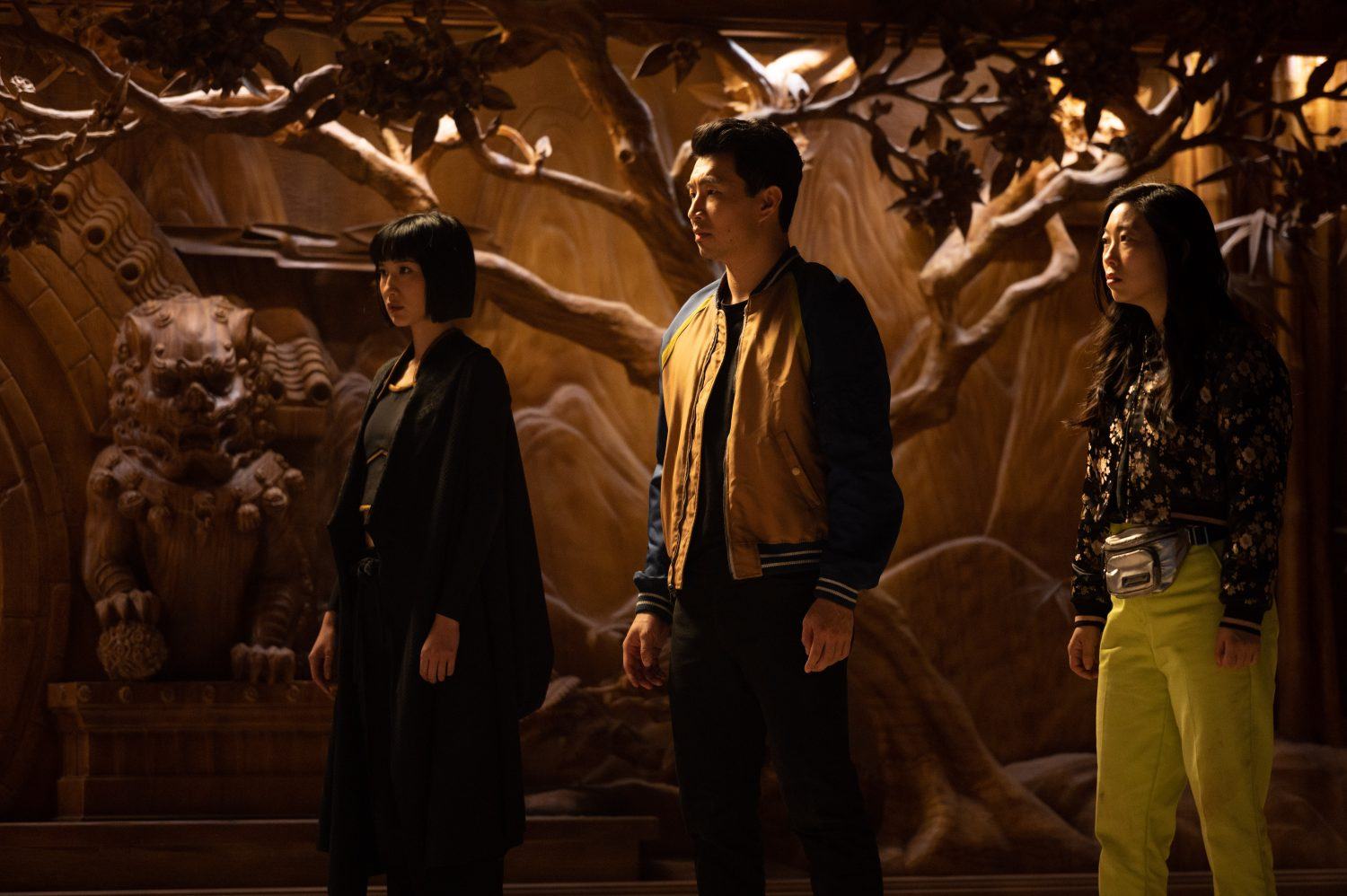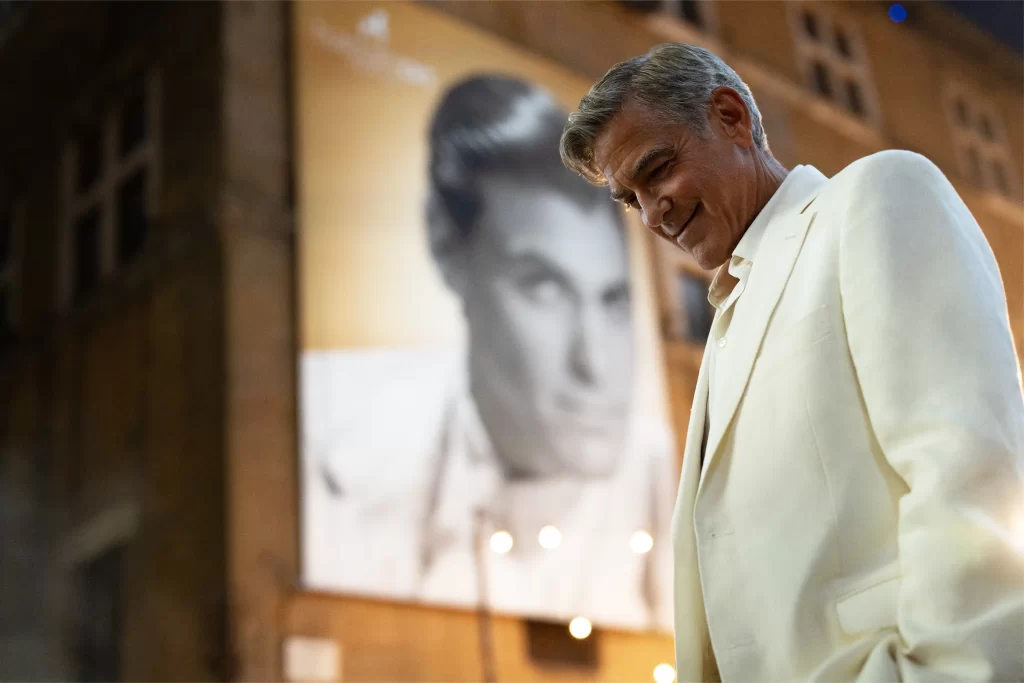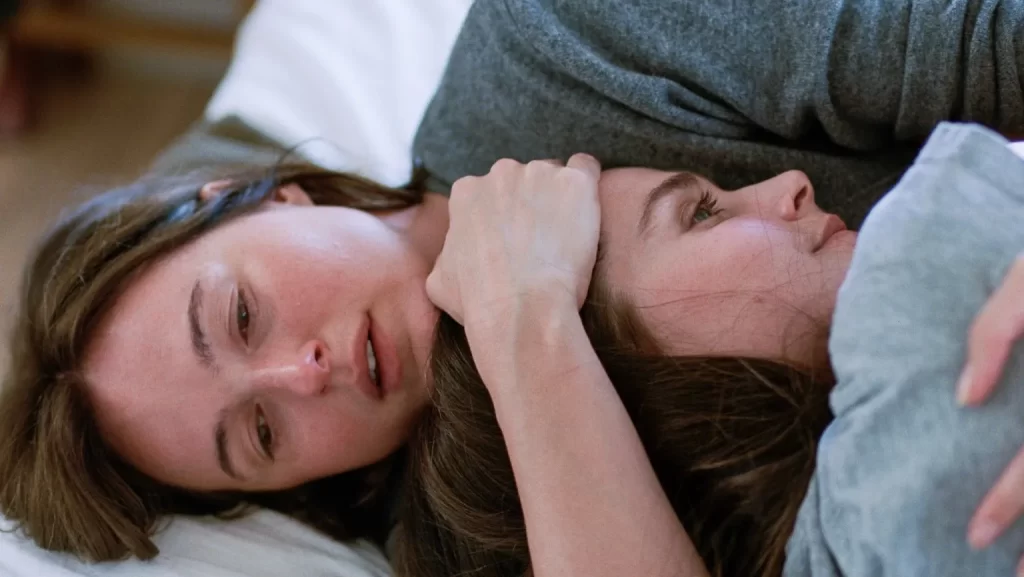It’s hard to remember a time when Marvel movies weren’t burdened by lore the weight of a generations-old family Bible. The films gave up “breakthrough success” status a decade ago, and the more recent Disney+ spin-off series have made Marvel Studios feel like even more of a behemoth than they already were, like The Blob, constantly growing and consuming everything in its path. Nothing has felt truly fresh since 2014’s Guardians of The Galaxy, or maybe 2017’s Thor: Ragnarok, if you’re feeling charitable.
Into this realm steps Shang-Chi and the Legend of the Ten Rings which, thank goodness, strips down that Marvel glut for a story that stands on its own, while connecting back to elements of the existing movies. It’s a story that feels “in” the MCU, but not “of” it, adding cultural diversity and a refreshing outside perspective. Amazingly, at a point in the Marvel life cycle where very little is surprising anymore, it manages to feel new.
Shang-Chi (Simu Liu) and his sister Xialing (Meng’er Zhang) are the children of two beings who gave up immortality to live a human life together. Wenwu (Tony Leung Chiu-wai), their father, controls the fabled Ten Rings, a mystical set of bracelets that give him endless power, which he’s used for self-gain and domination. Jiang Li (Fala Chen), their mother, comes from a mythical land called Ta Lo. Though she’s easily Wenwu’s match in battle, her ethos is based in love and connection to the Earth. After Jiang Li’s death, Wenwu returns to his merciless ways, eventually driving Shang-Chi and Xialing away.
In current-day San Francisco, Shang-Chi is a slacker, happy to work valet parking with his best friend Katy (Awkwafina). When members of his father’s gang come to collect a pendant his mother gave him, Shang-Chi and Katy head to Macau to alert Xialing, who has the pendant’s twin. The three of them end up back at the family compound, where Shang-Chi and Xialing learn Wenwu’s purpose for the pendants, and are finally forced to confront both sides of their inherited legacies for the sake of humanity.

Shang-Chi is lively and fun, thanks mainly to the excellent dynamic between Liu and Awkwafina, who have each other’s backs, but mainly love hijinks. Their relationship is never saccharine, and Katy gets her own significant character arc without feeling like a love interest or a thinly-developed sidekick. The film also isn’t afraid to get weird, featuring mythical creatures that are adorable, yet confusing enough to baffle the mind when you consider how they might fit into the inevitable tie-in merchandise.
The film’s main coup, however, is its casting. In addition to Liu and Awkwafina, Leung’s Wenwu is a compelling character, made all the more so by the man inhabiting the role. Fans of John Woo and Wong Kar-Wai are obviously familiar with Leung in layered, soulful roles (even in Hard Boiled, where he plays a badass undercover cop, he comes off as ultra-sensitive). That gravitas helps Wenwu from feeling like an outright villain, communicating the underlying regret and grief of a man whose ability to process his emotions is severely hampered by his toxic masculinity.
Shang-Chi feels like a welcome step forward for Marvel, in a direction not only of inclusivity, but true creativity that we can only hope suggests further interesting developments to come. It’s worth noting that the studio’s most interesting films to date have all come from directors of color. With filmmakers like Chloe Zhao and Nia DaCosta lined up for future entries in addition to Shang-Chi’s Destin Daniel Cretton, that continuing pattern suggests an intriguing future.
A-
“Shang-Chi and the Legend of the Ten Rings” is out Friday in theaters.



